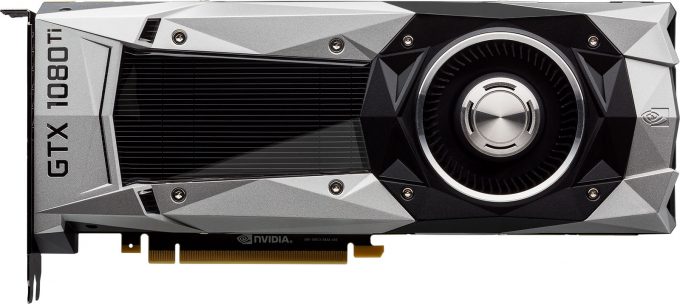- Qualcomm Launches Snapdragon 4 Gen 2 Mobile Platform
- AMD Launches Ryzen PRO 7000 Series Mobile & Desktop Platform
- Intel Launches Sleek Single-Slot Arc Pro A60 Workstation Graphics Card
- NVIDIA Announces Latest Ada Lovelace Additions: GeForce RTX 4060 Ti & RTX 4060
- Maxon Redshift With AMD Radeon GPU Rendering Support Now Available
NVIDIA Accused Of Anti-competitive Practices With New Partner Program
Some accusations are being hurled at NVIDIA today for alleged anti-competitive practices revolving around its newly launched “GeForce Partner Program”. If you hadn’t heard of that yet, don’t feel bad, because this is the first time I’m hearing about it, too. Despite that, anyone who paid attention to NVIDIA’s blog last week would have been tipped-off to its existence by head of GeForce partner marketing, John Teeple.
In his blog post, Teeple says that the GeForce Partner Program (or GPP as I’ll call it from hereon out) will help gamers to “know what they’re buying”. Ultimately, it sounds like NVIDIA will scratch the back of those companies who are willing to prioritize the sales of GeForce cards with their flagship brands. There’s nothing inherently wrong with that, but there are going to be less-than-ideal ways to go about things.
The blog post is wrapped-up by saying that the GPP will “support brands consumers associate with GeForce”. If you think ASUS, strictly as an example, NVIDIA would want you to think green. The same would apply to every other company willing to promote GeForce.
Where the problem exists, says Hard|OCP‘s Kyle Bennett, is that NVIDIA has allegedly crafted the program to force the hand of vendors to bolster their support of GeForce. When a company is selling 70% NVIDIA and 30% AMD, you could say that one GPU maker will have greater leverage over the other, after all. For full disclosure, Kyle admits that AMD came to him (and other sites, but not us) with this issue, so it could be that some other outlets are working on their own analysis.
Where confusion rises here is with some of the wording. In Teeple’s blog post, it’s explicitly mentioned that: “Partners continue to have the ability to sell and promote products from anyone.” It goes on to read that companies don’t have to pay to be part of the program, and that no product discounts are involved. Contrasting that is Kyle saying that he saw an agreement which read that a company’s “Gaming Brand” must be aligned with GeForce.
If true, it doesn’t mean that Teeple’s words were wrong, but it could be argued that he left some other words out. It ultimately sounds like if a company has a special gaming brand, the GPP would make them rework it to support only GeForce. Some examples would be ASUS’ (sorry, I’m not picking on you, ASUS) Republic of Gamers, or MSI’s generically named GAMING series. Other companies that don’t currently have a dedicated “gaming” line may be inspired to create one.
Without seeing the actual agreement, it’s hard to understand the true effects here, but since this is out in the open, it seems unlikely we’ll be twiddling our thumbs for too long before some important detail is ousted. I reached out to a couple of GeForce manufacturers, and so far have heard back from one, which didn’t want to comment. If anything changes, I’ll amend this post.
Whether this is truly anti-competitive, I’m not smart enough to say. If vendors are not disallowed from selling AMD GPUs, it’s hard to tell if there’d even be a case here, despite how anti-consumer it may seem. For NVIDIA, and its shareholders, the move would seem smart, because who wouldn’t want a generic term like “gaming” to be associated with their company? This could be interesting to watch unfold.





